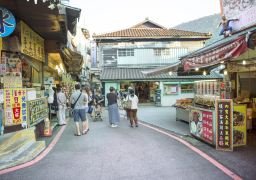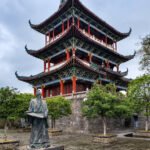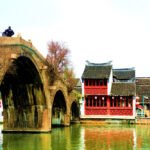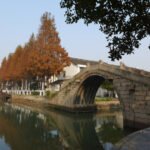Neiwan Town, also known as Neiwan Old Street. It was once the main road for transporting timber and minerals. In the 1950s, it was extremely lively. However, with the decline of the forestry and mining industries, the prosperity of Neiwan has returned from noise to tranquility. The Guangji Palace, train station, theater, and Neiwan Suspension Bridge on Neiwan Old Street are full of nostalgic atmosphere, and it is endless after shuttling through them. Among them, the vivid pictorial records of Third Brother A and Aunt Po under the pen of Liu Xingqin have become the symbol of Neiwan. The interesting comics on the street and the recently emerging specialties such as wild ginger flower dumplings add a strong touch of human kindness to the old street. The purple jade vegetable buns, Hakka Lei Cha, Lei Cha smoothie, Hakka mochi and other delicacies on Neiwan Old Street tease the taste buds of tourists. The Neiwan Station still retains the unique architecture of the 1950s and 1960s. There is a ‘commemorative monument for opening to traffic’ that allows future generations to reflect on the arduous journey of railway development. There are still shuttle buses departing from Zhudong Station every day. The small Neiwan Station is unpretentious and is an excellent shooting location for films or MTVs. Opening hours: Open all year round from 10:00 to 18:00. Service facilities: Barrier-free services: barrier-free parking lot, barrier-free entrance.







